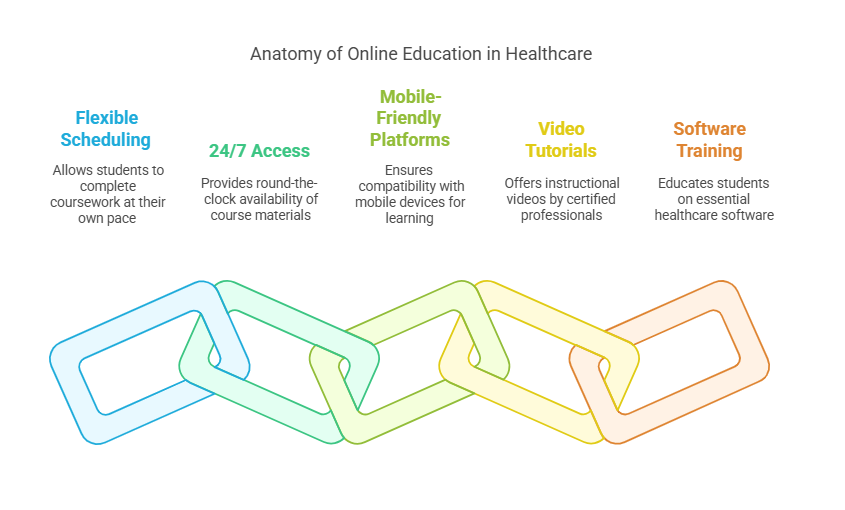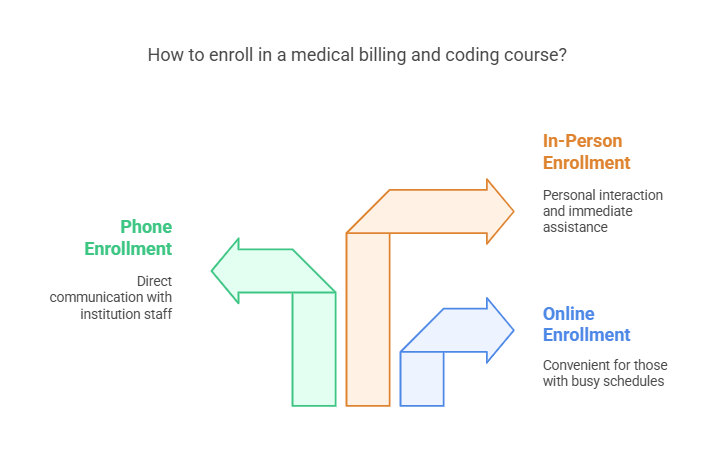Top Medical Billing and Coding Classes Online Michigan
If you're looking to break into the healthcare industry from the comfort of your home, Michigan’s top online medical billing and coding programs offer a flexible and affordable way to do so. These programs not only provide a solid foundation in healthcare administration but also prepare you for nationally recognized certification exams. With the healthcare sector growing rapidly in 2025, skilled professionals in billing and coding are in higher demand than ever.

Why Choose a Career in Medical Billing and Coding?
Medical billing and coding professionals play an essential role in healthcare by ensuring accurate documentation and reimbursement for patient services. This career path is ideal for those who prefer behind-the-scenes administrative roles with the flexibility to work remotely. Obtaining a medical billing and coding certification from institutions like AMBCI can significantly enhance one's prospects in this field. The field offers job security, decent starting salaries, and opportunities to advance into roles such as compliance officers, medical auditors, or even healthcare IT specialists. In 2025, with the widespread adoption of electronic health records and telehealth, certified coders are being recruited aggressively by hospitals, insurance firms, and clinics.
Online Programs Available in Michigan
Michigan offers several accredited online programs that cover medical terminology, human anatomy, coding systems like ICD-10 and CPT, and insurance claims management. Institutions such as Dorsey College and Central Michigan University provide fully online diplomas and certificates that can be completed in 6 to 12 months. These programs cater to residents across Metro Detroit, Grand Rapids, Lansing, and Saginaw, making professional training more accessible than ever.
Key Features of Online Programs
Online classes allow students to study at their own pace, often completing coursework in as little as 4 weeks or extending up to 6 months depending on personal schedules. Most programs include round-the-clock access to course materials, mobile-friendly platforms, and video tutorials by certified medical professionals. Students learn to use key software programs for billing, records management, and compliance—all essential for working in today's digital healthcare system.

Curriculum Overview
A standard medical billing and coding curriculum includes medical office procedures, healthcare law, anatomy and physiology, electronic health record (EHR) systems, and coding practice using ICD-10, HCPCS, and CPT. Students also learn about HIPAA compliance, insurance reimbursement, and the administrative side of healthcare operations. The coursework prepares them for professional certifications such as the Certified Professional Coder (CPC) exam from the AAPC or the Certified Billing and Coding Specialist (CBCS) exam from the NHA.
Accreditation and Career Readiness
Reputable programs in Michigan are accredited by organizations like the AAPC, NHA, and NCCT. Accreditation ensures that the curriculum aligns with current industry standards and that students are eligible for national certification exams. This distinction enhances employability in a competitive job market. In fact, according to the U.S. Bureau of Labor Statistics (BLS), the job outlook for medical records and health information specialists is expected to grow 8% from 2024 to 2034.
Certification and Job Opportunities
Earning a certification is often the key to unlocking job offers in this field. Employers prefer certified candidates due to their demonstrated knowledge and commitment to professional standards. With certification, individuals can pursue roles such as medical biller, coder, claims analyst, or even move into office management. Many graduates work remotely or in hybrid positions, particularly in 2025, as healthcare continues to embrace digital transformation.

Financial Aid and Tuition Support
One of the most appealing aspects of these programs is the availability of financial aid. Students may qualify for federal Pell Grants, FSEOG, or state-specific grants in Michigan. Some institutions offer internal scholarships, interest-free payment plans, and support from career counselors to make education more affordable. For instance, Michigan Works! continues to fund eligible students through workforce development programs.
Student Experiences and Success Stories
Graduates often report high satisfaction due to the flexibility and support of online learning environments. Alumni stories like that of Laura Bramell—who transitioned from hospitality to healthcare—demonstrate the program’s potential to transform lives. With accessible instructors, peer support groups, and career services, students feel empowered to enter the workforce with confidence.
How to Enroll and Get Started
To enroll in a medical billing and coding course in Michigan, applicants typically need a high school diploma or GED. Prospective students should evaluate factors such as accreditation, tuition costs, scheduling flexibility, and certification exam preparation. Most institutions offer multiple enrollment options including online sign-up, phone, or in-person registration.

6 Lesser-Known Facts About Medical Billing and Coding in 2025
Remote Job Growth: The COVID-19 pandemic beginning in early 2020 propelled the widespread adoption of remote work. Before 2020, medical records specialists working remotely held at 30 to 33 percent, according to historical data from AAPC’s Salary Survey. AAPC+1AAPC+1
EHR Specialization: Technological advancements, including automation and AI, are transforming the coding landscape, requiring coders to adapt and upskill to remain competitive in the field. Coding Clarified
AI Assistance: AI tools now assist coders in suggesting billing codes, speeding up the workflow without replacing the human role.
Bundled Credential Packages: While specific details about bundled credential packages in Michigan are limited, some institutions offer combined certifications like CPC + CBCS to enhance hireability.
Veterans' Support: Many Michigan-based programs accept GI Bill® benefits and provide veteran-specific counseling for career transition.
Multi-Lingual Coders in Demand: Bilingual coders are highly sought after in Michigan’s multicultural healthcare market, especially for Spanish and Arabic languages.
Frequently Asked Questions (FAQs)
-
Online programs offer flexibility, self-paced learning, and the convenience to balance work, family, and studies. They are ideal for working professionals and parents.
-
Dorsey College, Central Michigan University, Kirtland Community College, and Schoolcraft College are among the top accredited providers with online options in 2025.
-
Program durations range from 4 weeks to 12 months, depending on the course format and student availability.
-
Common certifications include the Certified Professional Coder (CPC), Certified Billing and Coding Specialist (CBCS), and Certified Coding Associate (CCA).
-
According to the BLS, jobs in medical billing and coding are projected to grow steadily through 2034, with remote and flexible work options on the rise.
